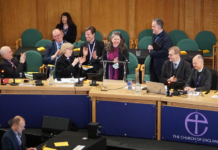Readings: Isaiah 58:1-12, Psalm 51:1-17, Matthew 6:1-6, 16-21
May I speak in the name of God, who is Creator, Redeemer and Sustainer. Amen.
Every year, Ash Wednesday and Lent give us the opportunity to re-consider our dependence on God’s grace in transforming our lives. As we gather for worship in the Cathedral this year, we are mindful that just two months ago we laid to rest the remains of our beloved Arch, Archbishop Emeritus Desmond Tutu, who challenged us so powerfully during Lent after Lent to focus on transforming the lives of God’s children everywhere.
This year we need to remind ourselves even in the midst of the coronavirus pandemic that we need also to maintain a focus on those health challenges which plague the lives of our people but which have been put on a back-burner for the last two years: HIV/Aids, TB, depression and other afflictions which affect especially the poor. These multiple challenges – which we experience in our worshipping communities, our places of work and among our families – underline how totally dependent we are on God at this difficult time in the lives of our country and our world.
Today as we embark on our journey through the seasons of Lent and Passiontide to Easter, we are prompted to discern the meaning of our reading from Isaiah, as well as the passage from Matthew, in a context of uncertainty and, in the past week, of war. Ash Wednesday and Lent again invite us to dig deeper, to attempt to imitate the Holiness of God in moral and ethical living in these difficult times. As always – and perhaps as never before – it is a time for stock-taking, for deepening our faith, for repentance and renewal, and for focusing on God rather than seeking praise or affirmation for ourselves.
Resolutions to fast and pray during this Lent are important and necessary. But the scripture readings require us to look beyond reducing our consumption and to consider deeper questions: to what end are we fasting and praying? They challenge us to stop being conceited. They call on us to put God first, and in South Africa today to speak up and speak out against exploitation, oppression and the inequality of opportunity, and then to do something about it.
None of us need reminding that we should oppose and condemn the disgraceful way in which people with no history of providing services to our communities, but with access to government tender-issuing processes, have exploited the human tragedy we are experiencing in South Africa.
On the international stage, none of us should need reminding that we must take a stand against aggression and war. And yet I discern a strand of thinking in South Africa that suggests because we distrust the strategic designs of the West and especially of Nato, we should overlook the flagrant breach of the United Nations Charter by the Russian Federation’s invasion of the sovereign nation of Ukraine.
The UN Secretary-General, António Guterres, made the position crystal clear last Thursday when he quoted Article 2.4 of the Charter: “All members shall refrain in their international relations from the threat or use of force against the territorial integrity or political independence of any state…” Applying the article to Russia’s action, the Secretary General’s judgement was stark: “It is wrong. It is against the Charter. It is unacceptable.”
I am pleased that our Government has demonstrated its adherence to the Charter and to international law by calling on Russia to withdraw its forces from Ukraine immediately. And while we can all agree with President Ramaphosa, Minister Naledi Pandor and the ANC that the conflict should have been averted by negotiation, that is no excuse for Russia’s flagrant act of aggression. South Africans of all shades of opinion can rally behind the Government’s call on both Russia and Ukraine to pursue diplomatic efforts to find a solution.
At the same time I urge the government to condemn unequivocally the Russian invasion. After all the support the United Nations gave us in the struggle against apartheid, it is unthinkable that we should approve such a flagrant violation of a central tenet of the UN Charter.
I urge those of you who are able to join the Dean and I on the steps outside on Wale Street after this service, where we will hold a silent protest in solidarity with the people of Ukraine. Please come alongside us for as long as you are able.
This Lent, let us recommit ourselves to being restorers and repairs of human dignity as we strive for the common good. By including these eternal values in our daily lives, let us condemn the inequality of opportunity in South Africa with renewed vigour. Please pray without ceasing for an end to the economic troubles that have overtaken our country. Just as we have overcame the past waves of Covid-19, so too can we overcome our economic divides if we dedicate as many resources, both spiritually and through collective action, to ending it.
Let us also re-dedicate ourselves to the struggle against the pursuit of narrow self-interest, personal gain, status, the hunger for power and material wealth – in short let us commit ourselves to the struggle for true justice, including economic justice. It is my prayer that we will all turn to Christ’s loving ways and become conduits of His peace this Lent.
God loves you, and so do I. God bless South Africa. Amen.



